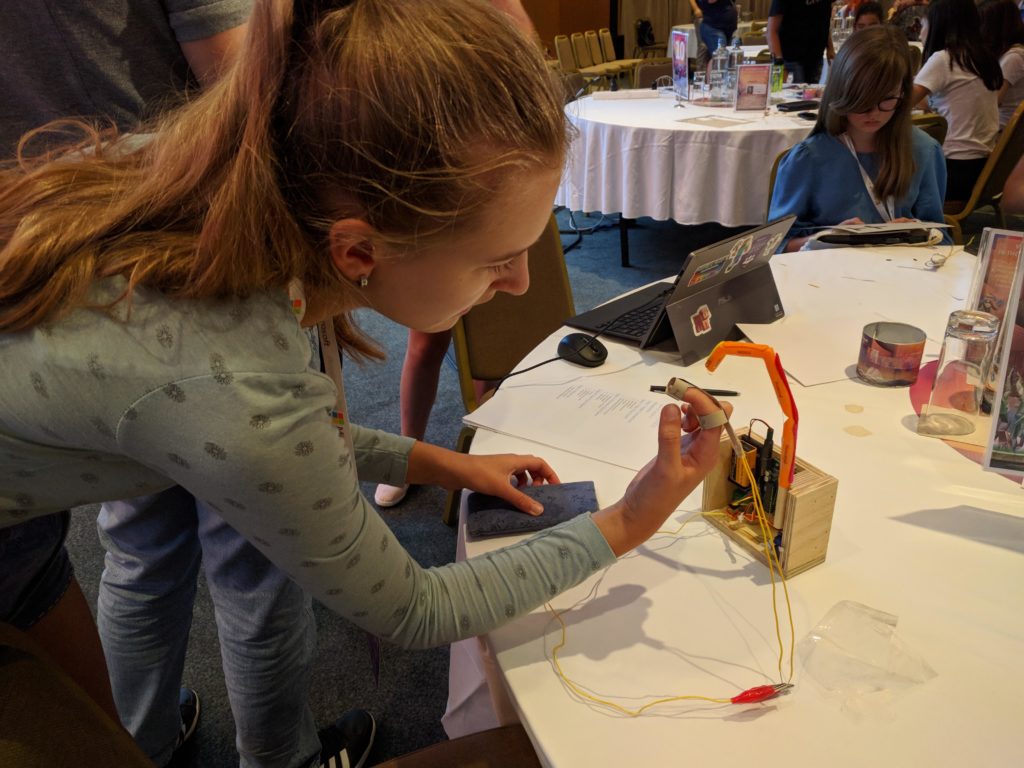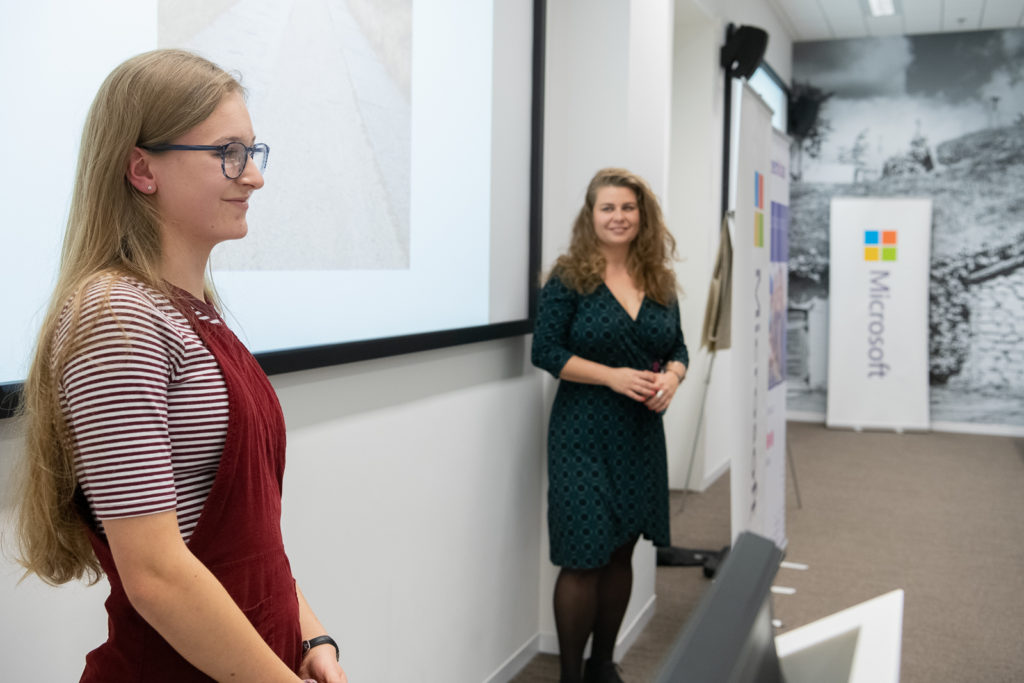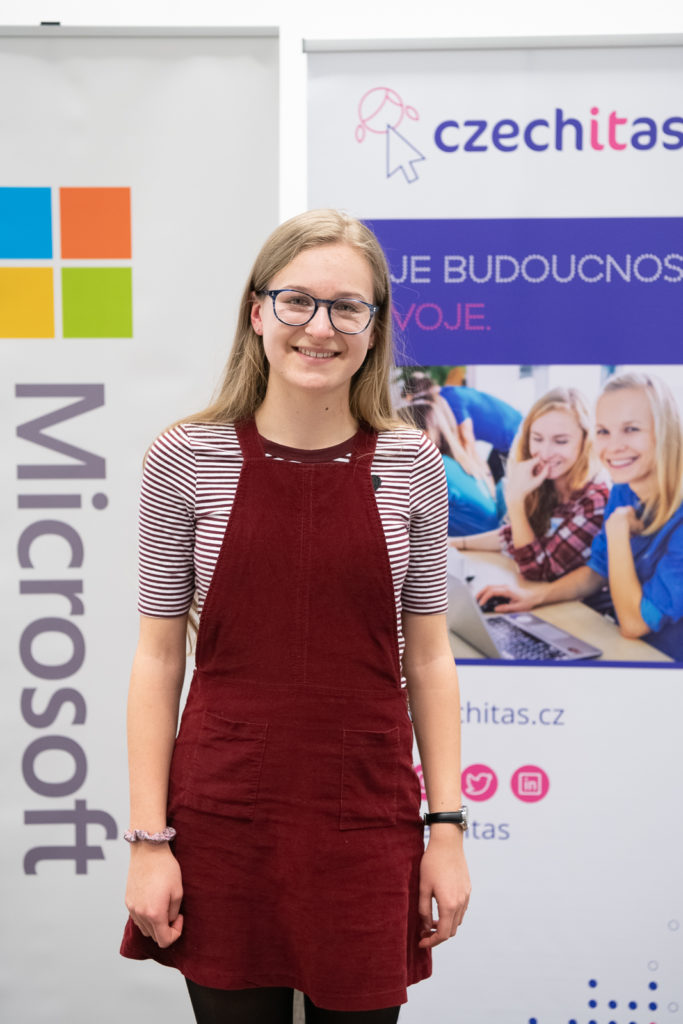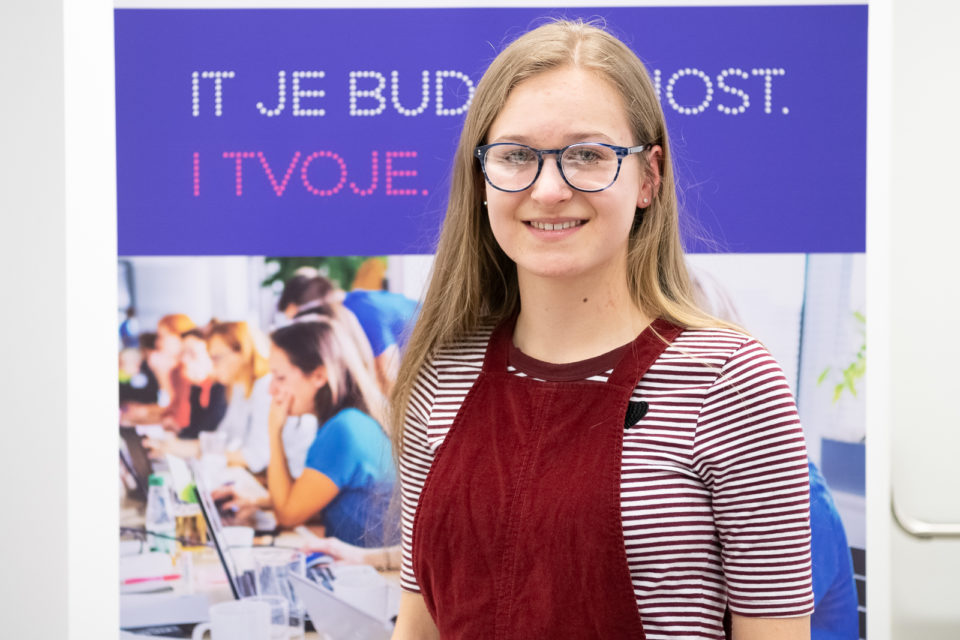Sometimes one small decision can take your life in a completely different direction – an experience that 16-year-old Maria Šimůnková is very familiar with. Last year she found herself in Athens, among a group of talented girls at a girls in STEM AI bootcamp called ‘Alice presents the future.’ The knowledge she acquired later helped her program a chatbot that a doctor is using to help process queries from patients, with other doctors also interested in her solution.
Maria practices ballet and has always had an interest in maths. Despite both of her parents working in computer science however, it was a field that never held her interest. When she received an invite to attend Microsoft’s AI bootcamp, she didn’t pay it much attention at first. “My mum teaches computer science at our school and she told me about this opportunity. At first I didn’t want to do it; it was the last day of school and I had my summer vacation ahead of me, but I told myself that I would be foolish not to try it,” explains Maria, who studies at the Havlíčkův Brod High School in the Czech Republic.
Maria kicked things off by making a short video proposal for a project using artificial intelligence. More than 600 girls applied to take part in the Microsoft AI Summer Camp for Girls interested in STEM subjects and 12 girls from the Czech Republic, including Maria, eventually flew to Athens, where a packed four-day program awaited them. The girls learned various digital skills including not only programming, but also system design and collaboration skills as well.

“There was a great group of people from the Czech Republic and from around the world. We all have a similar interest; imagine more than 150 girls all on the same wavelength! In the morning, we listened to lectures from inspirational people and then in the afternoon we took part in workshops where they introduced us to various tools: like Microsoft Azure, Minecraft for Education. We also worked with microcomputers,” she describes.
When she returned to the Czech Republic, Maria thought about how to develop her newly-acquired skills further, and use them for her secondary school expert activities. Seeing the potential of Microsoft Azure tools for creating chatbots, she decided to create one that would answer patients’ questions for doctors. She contacted a doctor in Havlíčkův Brod, as well as family friends, with her offer for cooperation. Eventually, a friend of her mother’s took an interest in the idea – pediatrician MUDr. Miroslava Kuglerová from Libčice nad Vltavou.
“The doctor liked our idea very much and she provided us basic information at the start. This was what the robot needed to know. We adhered to her operational questions strictly, because treatment is always up to the doctor herself. It was essentially about making sure the doctor had more time for her work and did not have to answer basic questions from patients,” she clarifies.
Maria first found out what interested patients. These were mainly questions about what documents they need to bring to their check-ups, what the doctor’s office hours were and whether there were fees for individual services offered by the doctor. Together with the doctor, they later used the answers to create the first version of the knowledge database.
“We fine-tuned it for six weeks, during which we got feedback from the chatbot so that it could continue to learn. We are currently planning together with the doctor the population of the database so that it includes more expert questions such as what to do when a child has a fever,” adds Maria.

Thanks to the large amount of data from questionnaires, the chatbot was created at the start of the year and, in February, testing started in a doctor’s office. “At the start, we needed to teach patients to work with the Facebook chatbot. Therefore, we launched a campaign using leaflets at the doctor’s office and questions gradually began to appear,” continues Maria.
The chatbot currently processes roughly 10 questions each week and the young programmer tries to further improve it. At least once a month, she checks the results for the answers to patients’ questions and she regularly trains the chatbot, despite having virtually no errors to date. “Most people wanted to use the chatbot to book and reserve doctor’s appointments. However, connecting to the reservation systems was technically very difficult and I also ran into problems with GDPR and data protection. Thus, I have not yet implemented this function in the chatbot,” she says.
Maria will defend her project this year at a competition for secondary school expert activities, where she has advanced to the regional round. In April, her chatbot project won at the nationwide finals for the Helle Köpfe (Bright Minds) contest organized by the Goethe Institute in Prague. Thanks to that, she will take part in a language course this summer. She is also happy that other doctors who are interested in similar services have contacted her. “Work on the entire project involves many parts: communication with the doctor, creation of the chatbot and connecting it to Facebook Messenger and promoting it among patients. The actual programming of the chatbot, however, did not take up much time, thanks to expert instructions on the Microsoft Azure website,” Maria explains.
 During one of the workshops in Athens, the girls attempted to create fingers with sensors for a robotic arm. Maria took an interest in this and upon returning home she decided that she would try to create a full robotic arm all by herself. “Everyone around me thought that I would give up after a while, but they were wrong,” smiles Maria. During her evenings, she studied manuals with the help of her father, and she learned to work with the Arduino micro-controller and its peripherals. Eventually, she was able to assemble a functioning prototype that she demonstrated at her high school’s open day.
During one of the workshops in Athens, the girls attempted to create fingers with sensors for a robotic arm. Maria took an interest in this and upon returning home she decided that she would try to create a full robotic arm all by herself. “Everyone around me thought that I would give up after a while, but they were wrong,” smiles Maria. During her evenings, she studied manuals with the help of her father, and she learned to work with the Arduino micro-controller and its peripherals. Eventually, she was able to assemble a functioning prototype that she demonstrated at her high school’s open day.
Maria shares her conviction that anyone can do the same thing, with her peers. “Those four days really opened new horizons for me, and I enjoy showing these possibilities to my fellow students,” she says. Immediately after returning from Athens, she gave a lecture for the other students about her experiences in Greece, showing them, for example, web services for the field of cognitive services that use artificial intelligence tools for text, image and voice recognition.
Despite Maria’s passion, the computer science seminar for older students was cancelled this year at her school due to lack of interest, and Maria and her peers must get by with an extracurricular class in robotics and programming that is led by none other than her mother. There’s good news however – younger students have already filled up the programming class. The enthusiasm created by passionate people like Maria, helps inspire peers.
Maria’s stay at the AI Bootcamp changed her vision of her future. “I would like to study informatics, artificial intelligence or data analytics. I will likely apply to the faculty of informatics at a major Czech university – either technical (ČVUT) or economic (VŠE). I’ve also thought about university studies abroad. I would definitely like to travel with Erasmus: especially, to study at the technical university in Vienna,” she states.
Please visit this article for information on the importance of role models for inspiring girls and young women to pursue STEM subjects.




